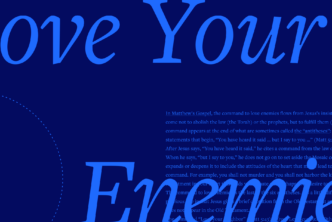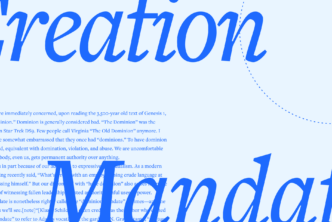I used to feel a lot of pressure to read must-read books. I felt guilty when I saw books on my friends’ shelves that I clearly should have read by that time. Things like Calvin’s Institutes, and whatever else my more advanced peers in biblical studies had read. I still feel some of that pressure, and I think some of it is healthy.
But then one of my favorite writers, Alan Jacobs, liberated me. He recommended that I drop out of the Vigilant School of the Must-Reads and live my reading life under the sign of Whim. I should read what I want.
He clarifies a little, then points to further complexity within his thesis:
I don’t want to say that all reading is equally good, equally valuable, but I also don’t want to give in to the Vigilant School, then what standard of readerly value am I appealing to? Answer: I am appealing to the standard of the reader’s own pleasure—a criterion that sounds more simple and straightforward than it is. (38)
Jacobs recognizes that one’s pleasures need to be educated and directed, and here lies the complexity. Who says whether my pleasures are well educated and well directed? Jacobs answers at some length, but I’ll share one key argument he makes: I can’t offload the responsibility for forming my reading list to anyone else, whether Mortimer Adler or bestcommentaries.com. No list of must-reads can possibly match God’s providential hand for giving me what I, in fact, do need. I’ve come, as in other areas of my life, to trust God in my reading: if I delight in him and walk with him according to his Word and I wish to read a given book, I do it. I listen to others when they tell me I must read something, but I try not to let them make me feel guilty when I find I just don’t want to.
Jacobs makes the further point that if you don’t read out of delight and pleasure, you probably won’t finish. There are times you should finish a book and times you shouldn’t—times when you read a tough book out of love for someone else who truly needs to hear your evaluation of it, and times when you put down a book because it isn’t worth its ink/pixels. But I have derived from Jacobs a principle I’ve lived by for nearly a decade: if my mind and heart are taken by a book, buy it now and get started on the reading.
Why I like ebooks for reading by whim
I like ebooks because they give me the ability to act on whim without delay. (I think Jacobs said this, too, but I can’t confirm it.)
An example: the most recent book I personally bought in Logos was Kenneth J. Stewart’s In Search of Ancient Roots: The Christian Past and the Evangelical Identity Crisis. A few writers I trust had recommended it as a probing discussion promising to answer some of my own questions: Are evangelicals indeed guilty of ignoring the writings of the Church Fathers? If evangelical Protestants are guilty, have we always been this way? Inquiring minds want to know. Stewart’s work promised to give me insight on such questions; it landed successfully on my book radar. And then the little dot on my radar representing Stewart’s book suddenly began flashing at the center. It was time to buy. Whim said so. But I have so many books—will I actually read this one? Yes, I thought, if I buy it now.
I did. And I quickly got through about five chapters, largely on my phone. Since I’d built up that much steam, and since the argument was clear and helpful and the chapters manageable in size, I’ve kept going. I’m now about halfway through. I sneak a read now and then when I have a few moments with my phone. I always have about 20 books going at once, with (wildly) varying levels of dedication.
Why I like the Logos mobile app
Since I read several books at a time, I need some level of organization to make it easy to get back to my active reads right when the whim strikes!
The tab-to-tab swiping in the new Logos mobile app has been a gamechanger for me. I keep my main Bibles open and synced together on the left (the Hebrew Bible is blank below because I happen to be in a New Testament passage). I keep the audio from a Mobile Ed course open on the far left so I can get to it easily. And I have a few books I’m currently reading on the right. The one with pride of place is the one I got on a whim.
Ordered loves
When you get a feel for the authors, publishers, and topics that interest you, and when you find out whose tastes are a good guide for your own, and when your interests are guided by the Spirit and his Word—when your loves are properly ordered—books have a way of hitting you at the right time.
I’m not claiming some kind of divine inspiration for my reading list, or even a developed doctrine of providence as applied to the topic. I’ll just note that if Christians generally believe in God’s providential care over their lives, his ability to orchestrate (make of that metaphor what you will, Calvinists and Arminians) their meetings with people, why not their meetings with people’s books? I tried to scale Frame’s The Doctrine of the Knowledge of God at least three times before I finally made it through. I can give no account for why whim failed me at first in what has become my favorite book of all time. But when I did finally get into the book, I was primed to receive maximum benefit from it. I was educationally, theologically, epistemologically, and personally ready.
I see a divine hand somewhere in there.
***






